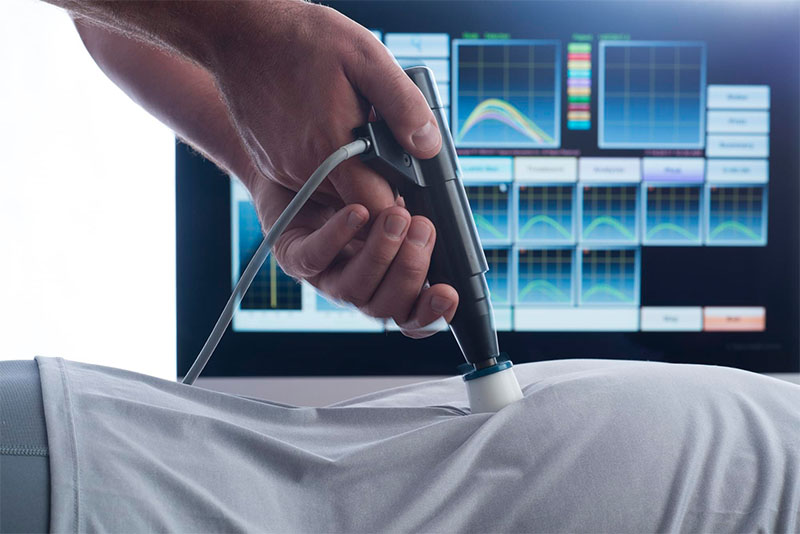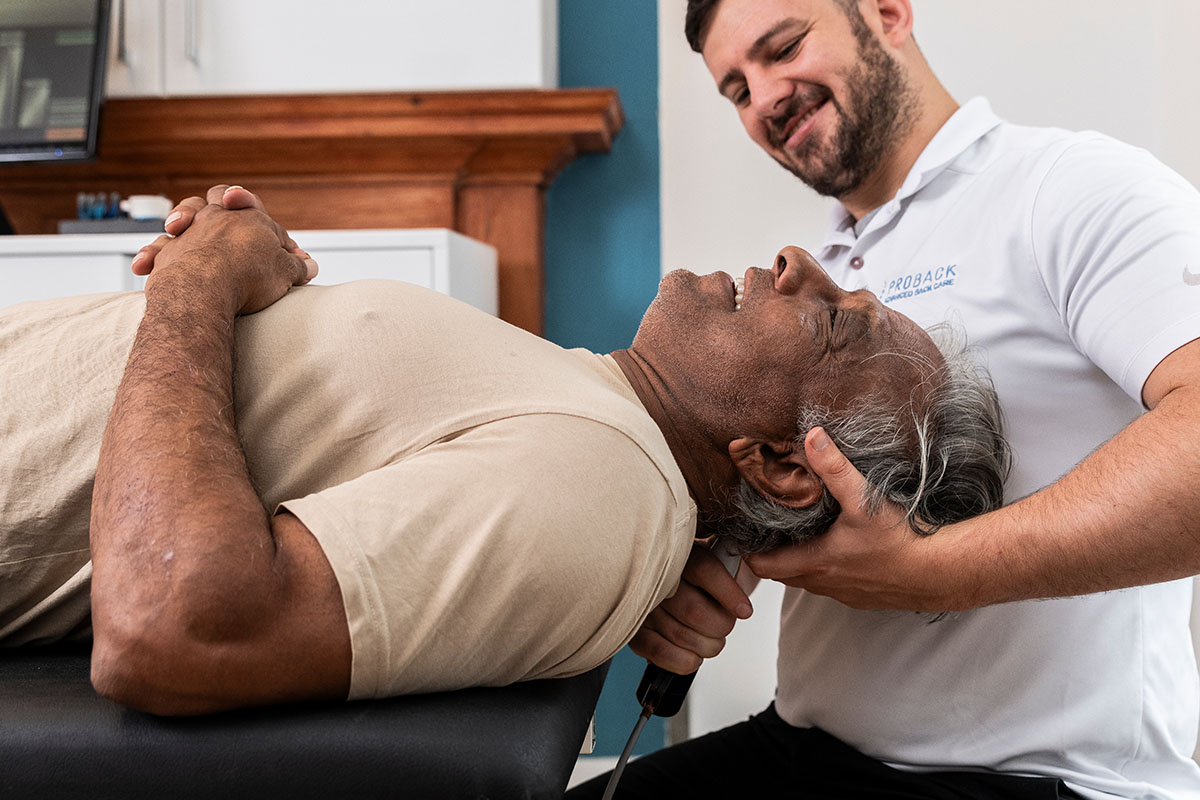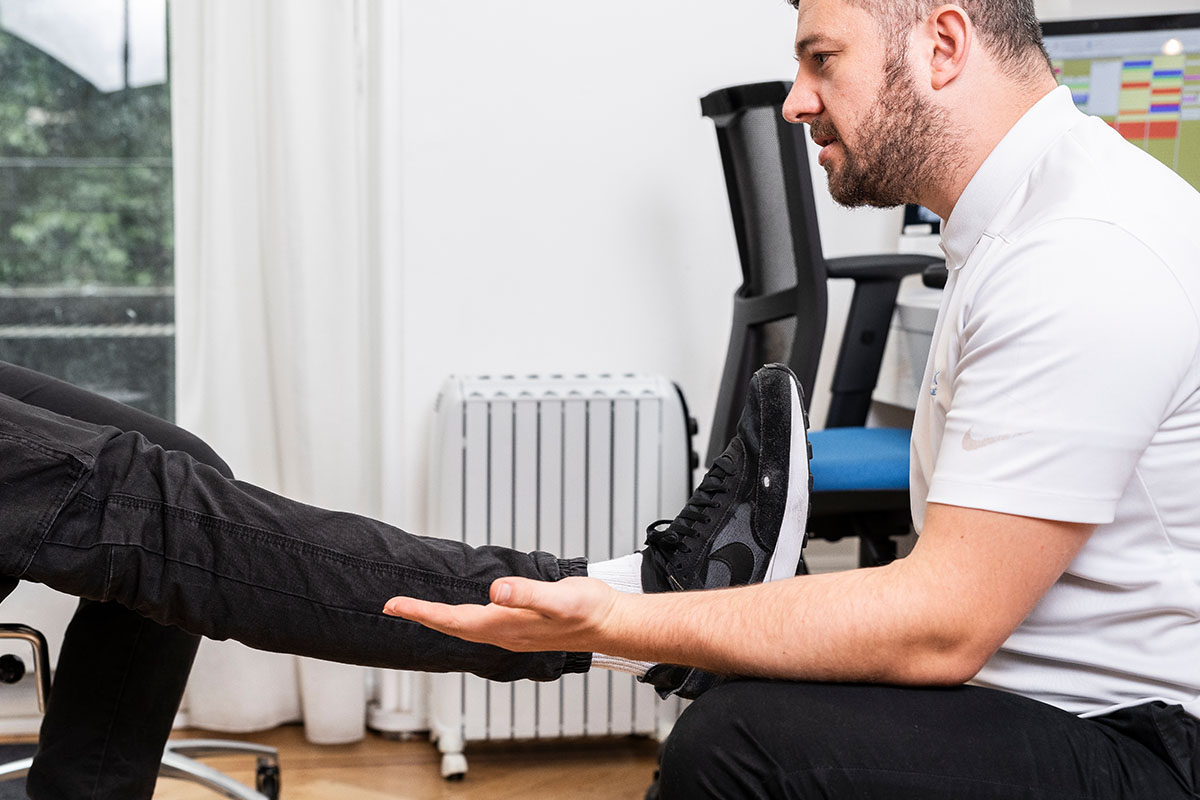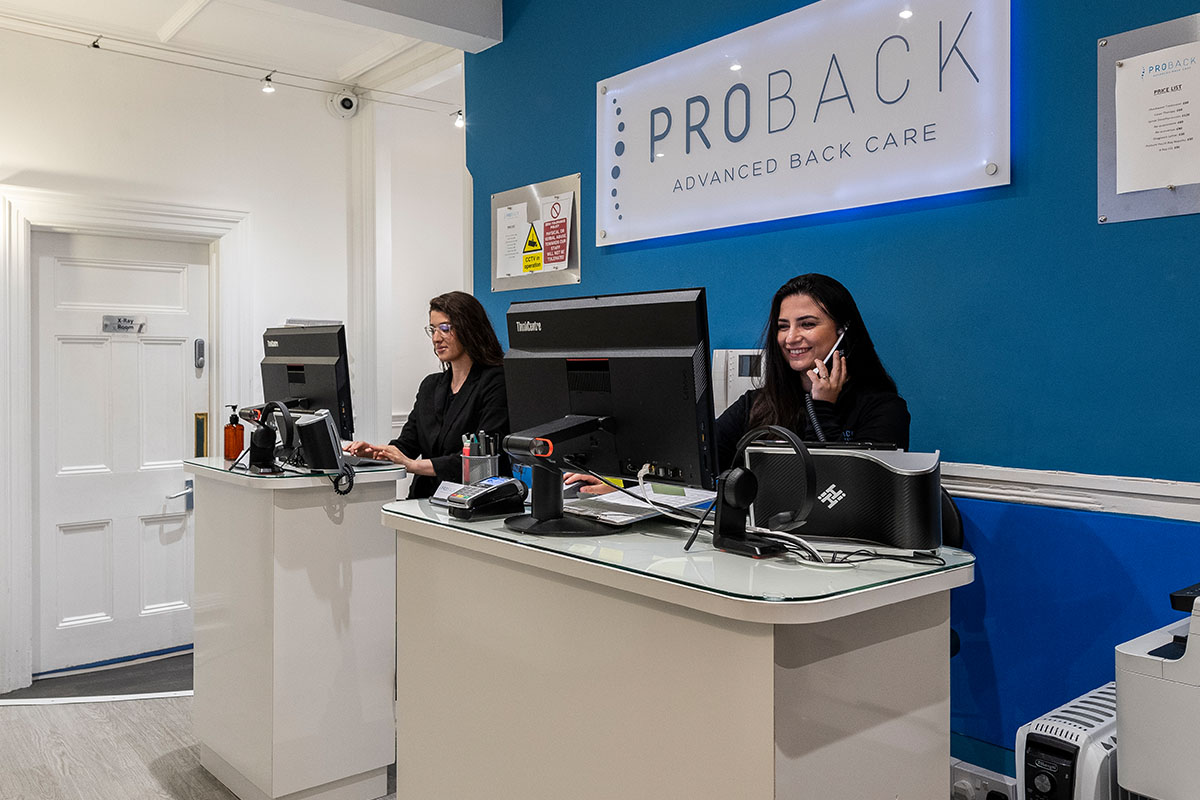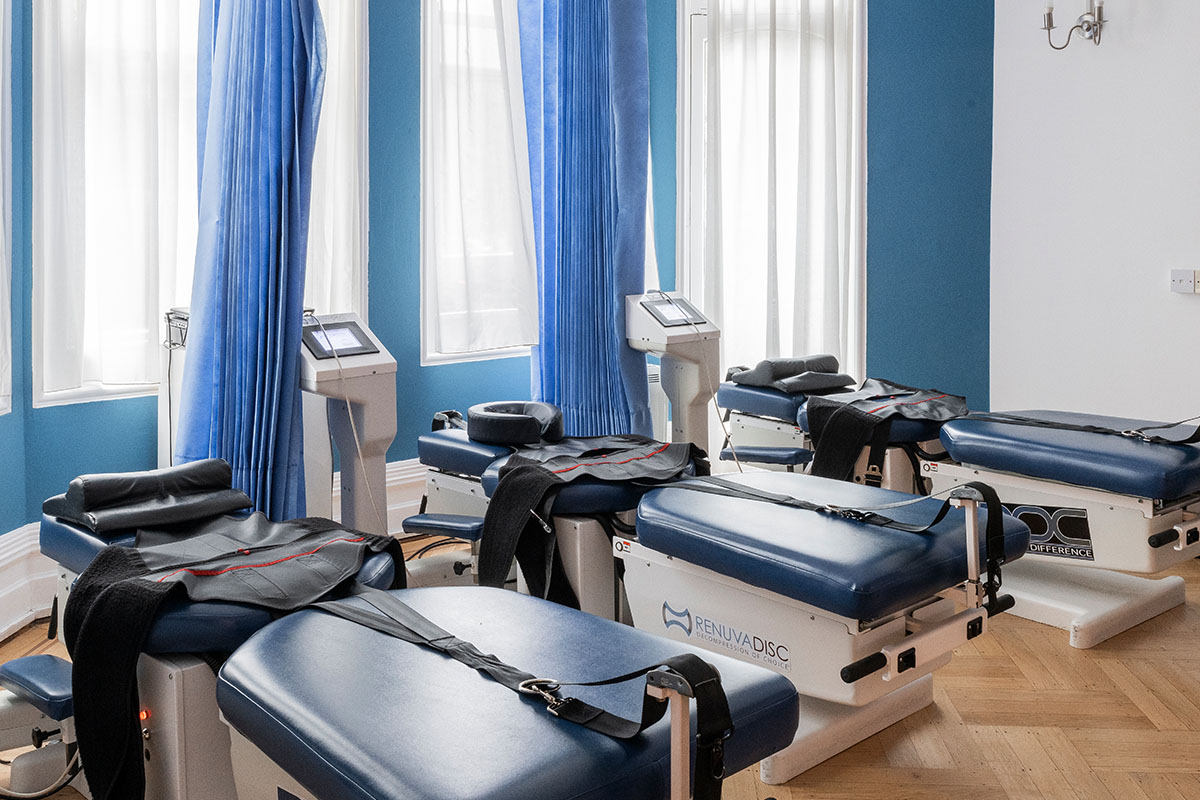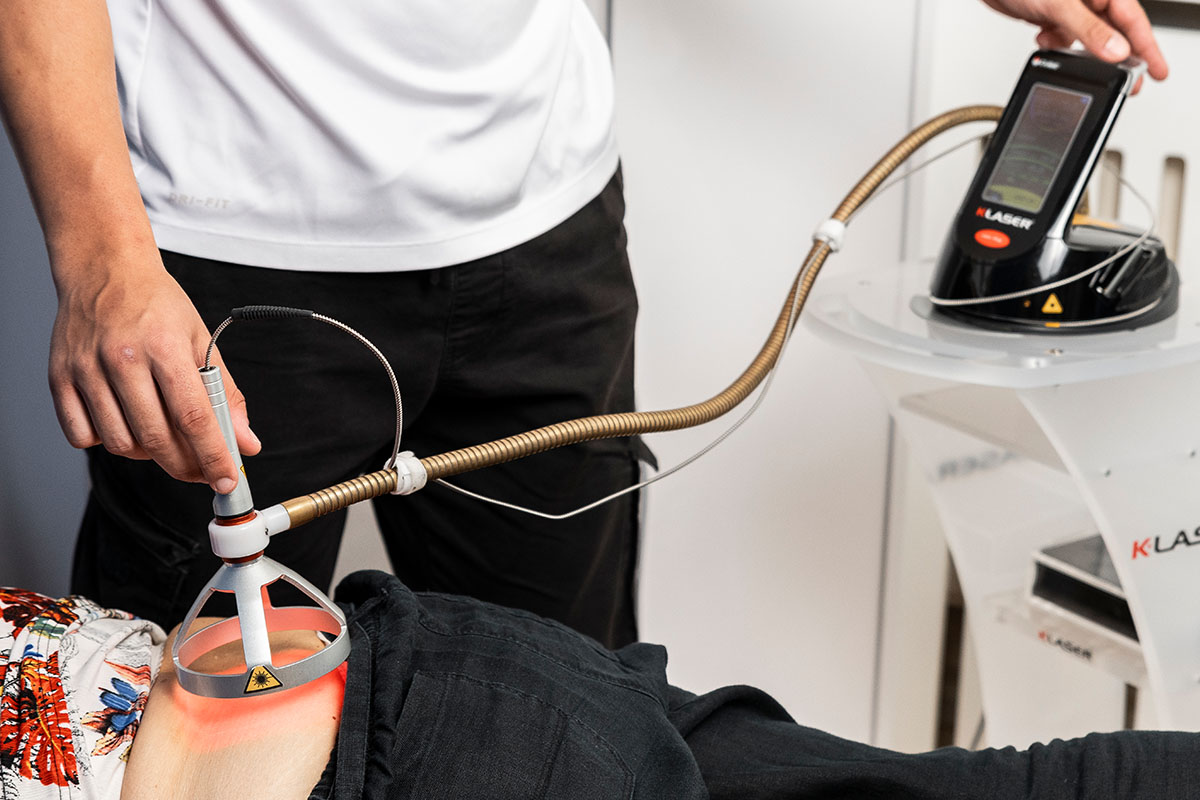
Shoulder Pain
Treating Shoulder Pain
Pain in the shoulder can be caused by a number of different things. There can be a problem with the shoulder itself or the pain can stem from an issue in a different part of the spine, usually the neck area. Poor posture and shoulder position, nerve pressure, trauma to the area, or repetitive strain can all cause problems with the shoulder.
Causes of Shoulder Pain
The exact cause of pain in your shoulders can be found through a full examination, possibly including x-rays. This allows our clinical team to work out which is the most suitable treatment for your case.
Conditions that can cause shoulder pain could be:
- Referred pain from the neck
- A SLAP Lesion (a tear in the glenoid section of the shoulder)
- Ligament damage
- Rotator cuff tear/impingement
- AC Joint Damage
- Frozen Shoulder
- Bicep Tendinopathy
- Fracture
- Dislocation
- Bursitis
Symptoms of a Shoulder Injury
Pain in the shoulder can be caused by a number of different things. There can be a problem with the shoulder itself or the pain can stem from an issue in a different part of the spine, usually the neck area. Poor posture and shoulder position over time, nerve pressure, trauma to the area or repetitive strain can all cause problems with the shoulder. The pain can vary in intensity, from mild, infrequent pain to chronic and constant pain in severe cases.
If you’re having shoulder pain, you might notice:
- Pain when performing certain movements or daily activities
- A cracking, locking or grinding sensation in the shoulder blade
- Loss of movement, flexibility or strength
- Pain while resting or sleeping
- Dull aches or pains
- Neck and shoulder pain
- Pain in the shoulder and arm


Treatments for Shoulder Pain
Unless the shoulder pain is radiating from elsewhere in the body, our Shockwave or Laser therapies can be the best option for any kind of shoulder injury.
- Shockwave therapy can be used all over the body to break down scar tissue in a painful area. This allows for proper tissue blood flow, oxygenation and tissue healing. For this reason, we would recommend this treatment for all of the conditions above, besides a fracture.
- For a condition such as Tendinopathy, shockwave can be one of the best treatments. Traditionally, there is a restricted amount of blood flow to tendons, making an injury to the area quite difficult to heal. By using shockwave on the area, it’s possible to improve the blood flow in the area which can help healing significantly.
- A careful examination of the cervical spine sometimes shows a direct relationship between a neck and shoulder problem. In this case, it’s important to treat the neck and the shoulder to provide proper nerve signals to the shoulders, and therefore encourage healing and muscle strength.

Our Shoulder Pain Treatments
- The combination of shockwave therapy and our laser treatments can make a big difference to the healing time. With a slow healing injury, or an older patient, healing times can be the most challenging part of rehabilitation. Laser therapy works deep down into the tissues at a cellular level, to help trigger the body’s natural healing and tissue repair. This in turn can lead to less pain, improved circulation and a decrease in swelling.
- If the pain is radiating from a different area of the body, for example the neck, the underlying cause could be a disc issue or a nerve impingement in the neck. These conditions could be treated effectively using spinal decompression therapy.
- Once the body has begun to heal, strengthening the muscles in the area is usually key to helping make sure the problem doesn’t recur in the long term. Shoulder strengthening exercises are prescribed by us at the clinic once pain levels are manageable, usually after your first phase of care.

FAQs
Disc problems and nerve impingement in the neck is a very common cause of radiating pain into the shoulder. Poor posture is also an extremely common way of developing shoulder pain. When the head carries further forward, pectoral muscles can become tighter meaning the muscles in the shoulder have to work harder. Moreover, when the head is further forward, this can increase the amount of weight the shoulders have to hold, making them at risk of injury.
We would always recommend coming to the clinic for an examination to find out exactly what’s wrong with your shoulder before suggesting exercises. Once shoulder pain levels have decreased enough to improve flexibility and range of motion, we can then give you specific exercises tailored to your needs. This will help to improve the longevity of your treatment outside of the clinic and contribute towards lasting shoulder pain relief.
Pain caused by a problem within the shoulder can lead to a build up of scar tissue, causing stiffness, decreased range of motion, reduced blood flow into the area. Shockwave therapy can help to break down the scar tissue, improve movement and reduce shoulder pain. Shockwave therapy can also increase the blood flow to the area, creating a much better healing environment for your shoulder to start repairing itself. Shockwave is especially effective with patients suffering from frozen shoulder.
On your first visit to the clinic, we will give you a full, thorough consultation. This will include a number of physical tests, and x-rays may be taken on the day. The following session will involve reviewing your results, and telling you exactly what’s wrong with your shoulder, which treatment(s) would give you the best relief and how many sessions we think you’ll need.
Use the form below to book a consultation.
Consultation includes examination, x-ray (if required) and results.
We typically reply within 60 minutes during opening hours.
Award-Winning Treatments
Gentle Non-Surgical Chiropractic Therapy
Inside Proback
5 Minutes From London Victoria Station
Use the form below to book a consultation.
Consultation includes examination, x-ray (if required) and results.
We typically reply within 60 minutes during opening hours.
Accreditations



How To Find Us
Flat 4, Evelyn Mansions,
Carlisle Place, Westminster,
London, SW1P 1NH
Opening Times
Weekdays 8.30am - 8pm
Saturday 9am - 3pm

020 7976 6648





